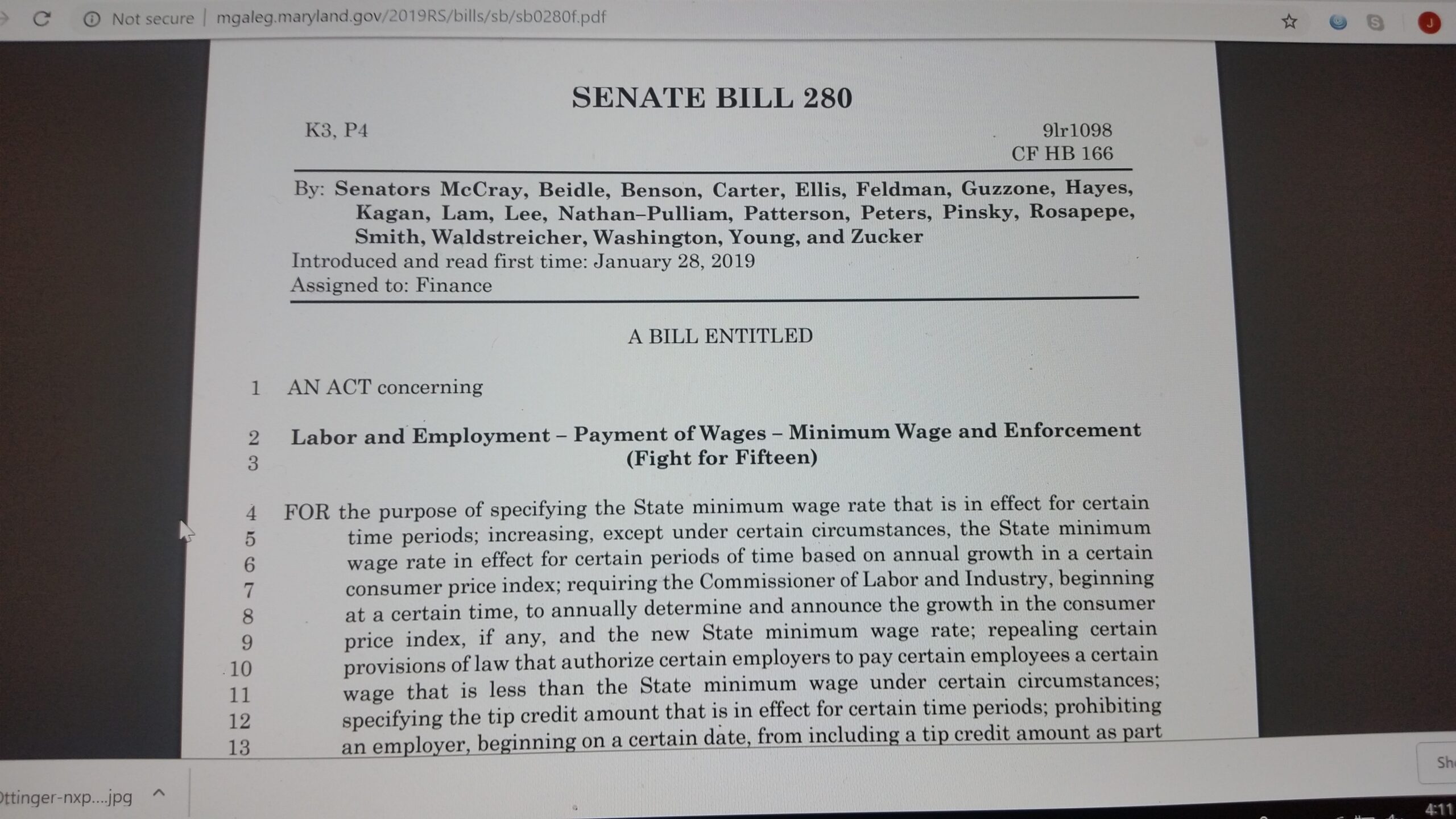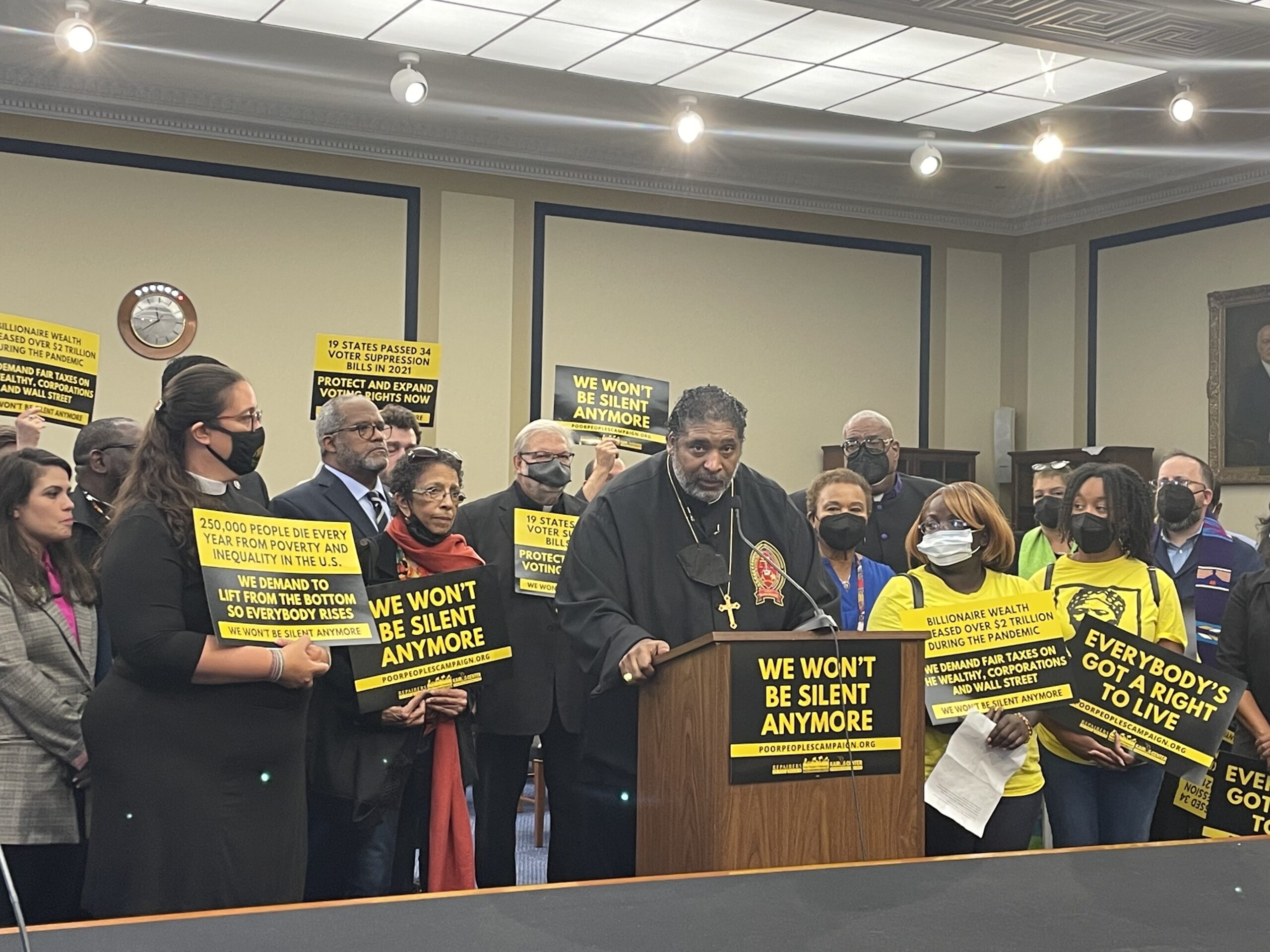Opinion: Addressing Racial Harm in a Systemic Way in Our Maryland

Shamefully, racism by another public official in the DMV just reared its ugly head — this time in our Maryland. It’s going to take deep listening and urgent action by all of us to create the more equitable, inclusive community we seek.
Last week, Maryland Delegate Mary Ann Lisanti was unanimously censured by her colleagues and stripped of all of her committee posts for using the N-word to describe a legislative district in Prince George’s County where almost 80 percent of the residents are black, as well as for her subsequent evasive and flippant responses. Delegate Lisanti has agreed to undergo sensitivity training but so far refused increasing calls to resign.
While individual accountability and change is critical, racism and its effects in our region and country are rooted in a shameful, collective history that has caused continuing economic and social harm to African American and other communities of color. Such systemic harm requires a systemic response.
As national social justice leader Rev. William J. Barber II wrote recently, if politicians who’ve used the N-word or engaged in other racist conduct “want to repent…the first question they must ask is ‘How are the people who have been harmed by my actions asking to change the policies and practices of our society?’ In political life, this means committing to expand voting rights, stand with immigrant neighbors, and provide health care and living wages for all people.”
In Virginia, Gov. Ralph Northam has vowed to devote the rest of his term to advancing racial equity, though specific actions by him and legislators are still to be determined.
However, here in Maryland, as we near the final month of the legislative session, Delegate Lisanti and her colleagues in the General Assembly have an immediate opportunity to act on the needs and priorities identified by African American and other communities of color.
As a prime example, the Maryland NAACP, the Legislative Black Caucus of Maryland, CASA de Maryland and other nonprofits representing affected communities, have made the Fight for a Clean $15 minimum wage increase by 2023 a top priority.

Larry Ottinger, board chairman of Our Maryland
Last Friday, the House passed a bill to increase the minimum wage but included several weakening amendments that Delegate Lisanti and others supported. These amendments eliminated future indexing for inflation, removed coverage for tipped workers and agricultural workers, lowered raises for young workers and delayed the final increase to $15 until 2025. These amendments – along with others that the Maryland Senate might consider as soon as Thursday morning in the Finance Committee – threaten to undermine the bill’s protections and would disproportionately harm communities of color.
As a policy brief by the Maryland Center on Economic Policy and National Employment Law Project shows, a Clean $15 minimum wage law would narrow the “persistent gender- and race-based pay and wealth gaps, and improve health and educational prospects for children.” Of the approximately 600,000 low-wage workers who would benefit from this law, one in four would be workers of color and one in four would be working women. In addition, nearly 300,000 Maryland children are supported by a parent on minimum wage.
Thus, if Delegate Lisanti and her colleagues in the Maryland General Assembly truly want to listen to the communities that have been harmed and marginalized – not only by individual racist conduct but also by historic and ongoing policies and practices – then they should work to enact a Clean $15 minimum wage, as well as to address affordable health care, criminal justice, education and other priorities identified by the affected communities.
— Larry Ottinger
The writer is chairman of the board of Our Maryland, a progressive advocacy organization.




 Creative Commons Attribution
Creative Commons Attribution